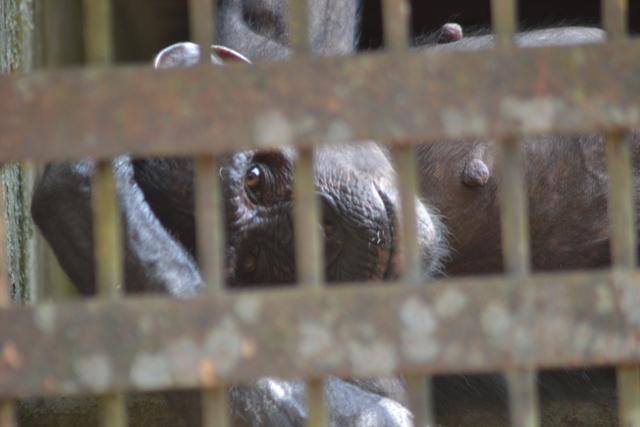Rachel Ashegbofe Ikemeh
Other projects
8 Jan 2014
Nigerian – Cameroon Chimpanzee (Pan troglodytes ellioti) Research and Conservation in South-Western Nigerian Forests
22 Aug 2016
Nigerian – Cameroon Chimpanzee Research and Conservation Efforts in Southwestern Nigerian Forests
20 Aug 2019
Advancing Integrated Participatory Conservation Actions for Chimpanzees in Southwestern Nigeria
19 Jan 2021
Protecting a Unique Group of Chimpanzees and its Habitat in Ise Forest Conservation Area, Southwest of Nigeria
This Project aims to enhance the conservation of Nigerian-Cameroon chimpanzee through critical research efforts and awareness in two priority sites in southwestern Nigeria.

This project attempts to gather the critical population and distribution data vital to designing practical conservation plans to protect some of the last remaining populations of the Endangered Nigerian Cameroon chimpanzee (Pan troglodytes ellioti) in southwestern Nigeria.
This project will apply an integrated suite of tools to produce data that will enhance conservation action at survey sites. Our survey will apply GIS applications and digital techniques to produce spatially relevant data on chimpanzee distribution within a particular site in relation to other spatial information e.g. habitat condition, land use, human activities in the area and threats. Some reports suggest chimpanzees are predominantly hunted for traditional ritual purposes than for bushmeat (Bocian 1999, Ikemeh 2007, 2008) and perhaps significantly represented in traded wildlife as primates are more likely viewed as pets or entertainers by many in the country.
Therefore, this project will determine direct threats to chimpanzees, and document the degree of human impact and management issues that hamper meaningful conservation efforts; these include the trade of body parts and live individuals, as well as habitat loss and disturbance from logging and agricultural activities. In addition, other species of conservation concern will also benefit from our survey efforts, in particular, the forest elephant population known to survive in the Idanre Cluster (Ikemeh 2009b). In addition, the evolutionary relationships of chimpanzees in southwest Nigeria remain unresolved (Gonder et al. 2006) due to a lack of adequate sampling (Morgan et al. 2011). Thus, one of our goals is to contribute fecal and hair samples to ongoing studies aimed at understanding how chimpanzees in southwestern Nigeria ‘fit’ into this species’ genetic landscape.